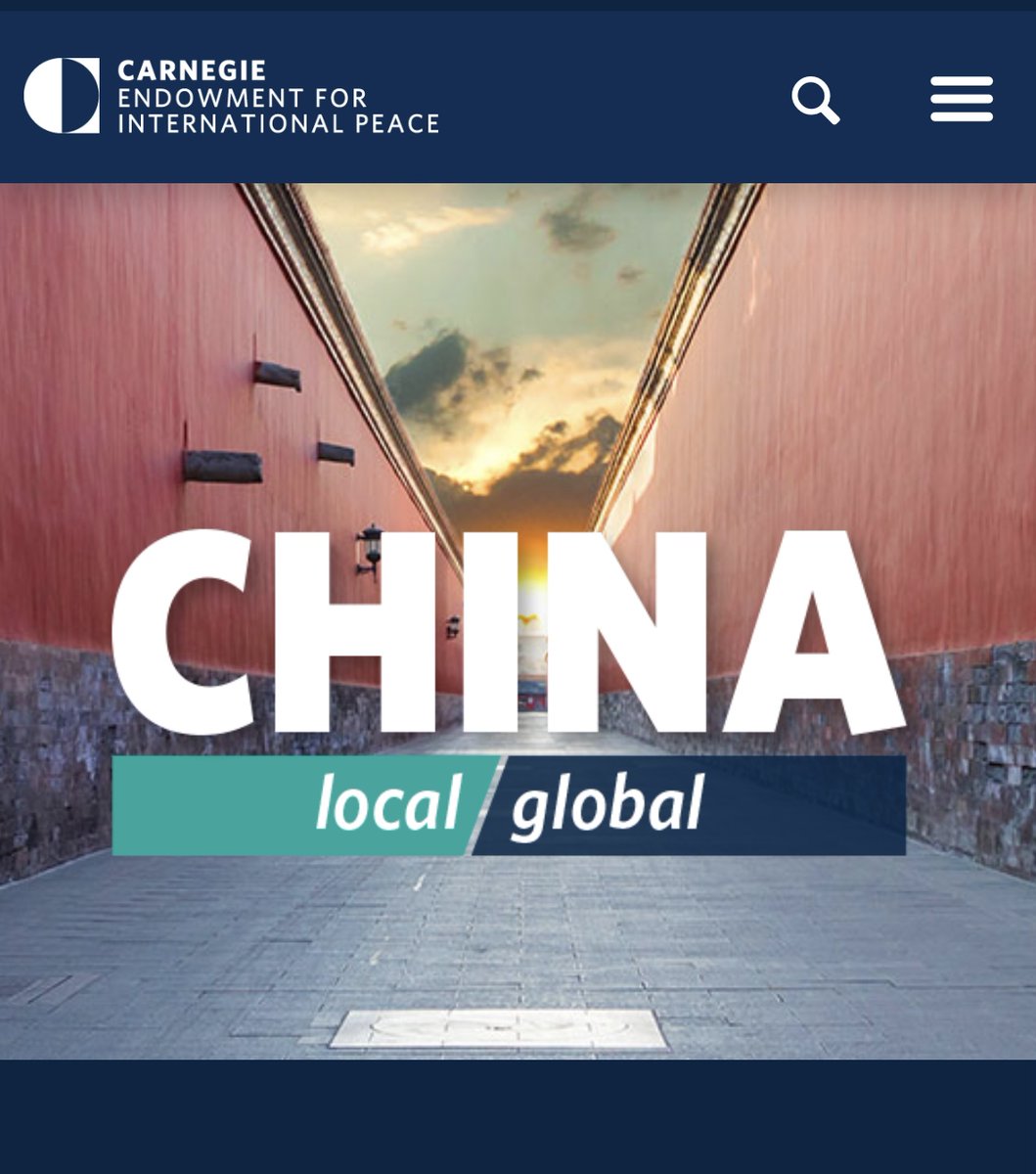
Leading Asia expert experienced across government, markets, and think tanks. Advisor to two Secretaries of State, a former Treasury Secretary, and global CEOs.
5 subscribers
How to get URL link on X (Twitter) App


 2: America's oversecuritization of its approach to Asia - Washington is long on security and short on pretty much everything else. As I sometimes tartly put it, the United States is in serious danger of becoming "the Hessians of Asia."
2: America's oversecuritization of its approach to Asia - Washington is long on security and short on pretty much everything else. As I sometimes tartly put it, the United States is in serious danger of becoming "the Hessians of Asia."

 2: From 2011, when Xi Jinping was barely out of the provinces and two years before China proposed the Belt and Road: Asia is being reconnected after a multicentury hiatus; the US is losing the plot and risks being marginalized; China isn't the only actor. csis.org/analysis/twq-w…
2: From 2011, when Xi Jinping was barely out of the provinces and two years before China proposed the Belt and Road: Asia is being reconnected after a multicentury hiatus; the US is losing the plot and risks being marginalized; China isn't the only actor. csis.org/analysis/twq-w…
https://twitter.com/Joe_Webster_CRR/status/16669798034952929282: The irony is that the US doesn't need to do this. There is plenty of suspicion of Chinese intent across the world today, including the Global South. Experience is an good teacher, so governments are learning and bargaining differently with China while mass publics demand more.


 2: Our unique #IndianOceanInitiative and our islands program are both led by the amazing @darshanabaruah. Her work explores maritime security, India’s naval strategy, island agency in shaping great power competition, and maritime partnerships. carnegieendowment.org/experts/1253
2: Our unique #IndianOceanInitiative and our islands program are both led by the amazing @darshanabaruah. Her work explores maritime security, India’s naval strategy, island agency in shaping great power competition, and maritime partnerships. carnegieendowment.org/experts/1253
https://twitter.com/EvanFeigenbaum/status/15936233231366389772: To be blunt, experience and intuition tell me that Washington is delusional if thinks this kind of stark, binary message on China is going to work in most regions of the world - inclusive of, but not limited to, the Middle East and North Africa.
https://twitter.com/DOD_Policy/status/1593628730676711424?s=20&t=FOVtK9QCzIRIzd1u-srUvg

 2/4 For one, while official Washington and Tokyo have committed to make technology collaboration a centerpiece of US-Japan relations, the critical step will be to enhance *private* sector–led innovation, not least in Silicon Valley. carnegieendowment.org/2022/03/09/how…
2/4 For one, while official Washington and Tokyo have committed to make technology collaboration a centerpiece of US-Japan relations, the critical step will be to enhance *private* sector–led innovation, not least in Silicon Valley. carnegieendowment.org/2022/03/09/how…
https://twitter.com/USTradeRep/status/15319869272636579842: And Taiwan benefits too from robust economic ties to the United States—one of its top five export markets and an essential technology partner. Taiwan, incidentally, discovered Silicon Valley decades before much of the rest of the world did, driving entrepreneurial growth.
https://twitter.com/Navbahor/status/15265800854275235852: Central Asian elites are nobody's fools about Chinese power. But they aren't naive about American power either. And with Taliban victory, much of what's happening in the region has, frankly, been de-Americanized and is instead being regionalized. They, not we, drive the play.





 2: Taiwan #1 ... In the first of three big studies of Taiwan's competitiveness, I argued that its innovation advantage is in danger of eroding without a revitalized strategy and much more diverse investments in human capital and next-generation industries: carnegieendowment.org/2020/01/29/ass…
2: Taiwan #1 ... In the first of three big studies of Taiwan's competitiveness, I argued that its innovation advantage is in danger of eroding without a revitalized strategy and much more diverse investments in human capital and next-generation industries: carnegieendowment.org/2020/01/29/ass…


 2: With the generous support of @FordFoundation @CarnegieEndow is developing an innovative body of research on Chinese engagement in seven regions of the world—Africa, Central Asia, Latin America, the Middle East and North Africa, the Pacific, South Asia, and Southeast Asia.
2: With the generous support of @FordFoundation @CarnegieEndow is developing an innovative body of research on Chinese engagement in seven regions of the world—Africa, Central Asia, Latin America, the Middle East and North Africa, the Pacific, South Asia, and Southeast Asia.